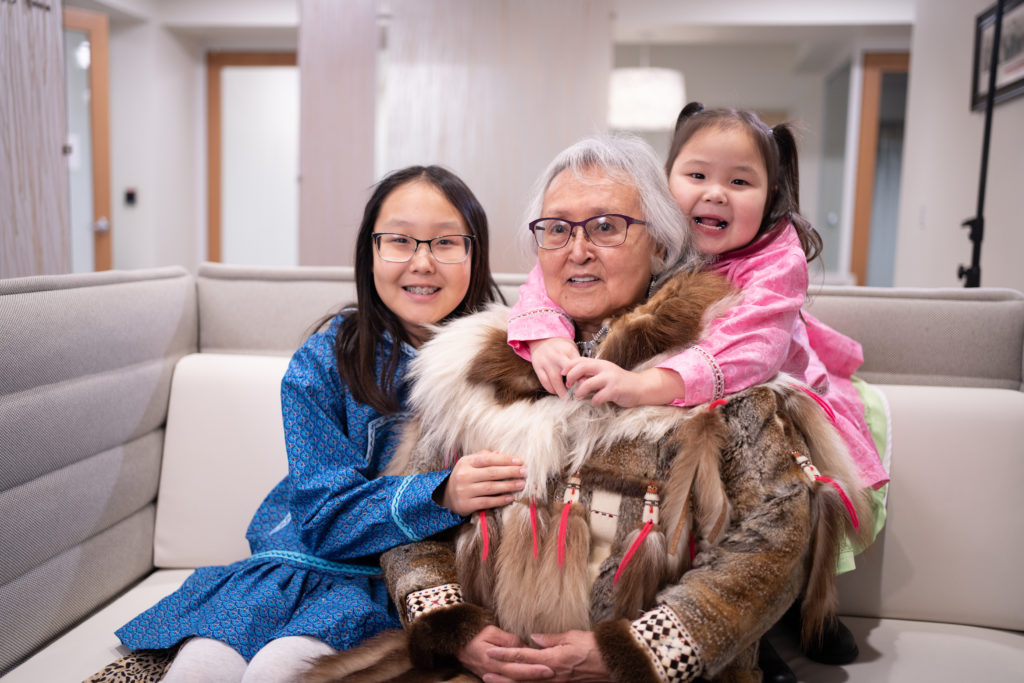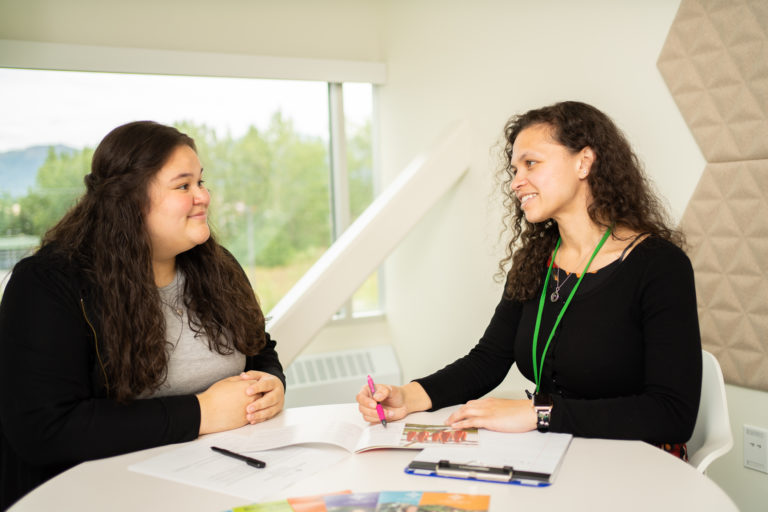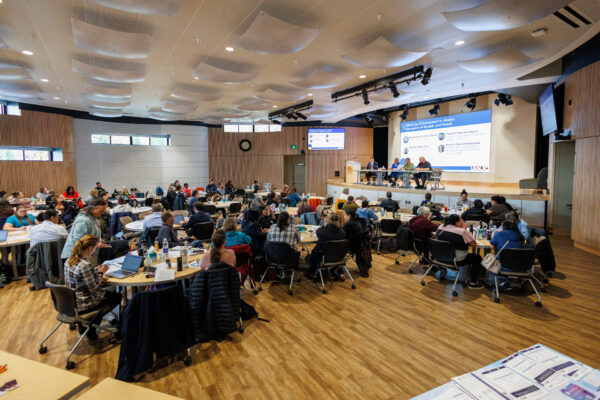
Growth in a year of challenge
Last year, the Alaska Native Justice Center (ANJC) served 7,950 individuals through its programs—an 87 percent increase since 2016. In a year when a pandemic often made it difficult for people to connect, ANJC found innovative ways to bring its services to more people than ever.
With staff now working both on-site and remotely, ANJC has reimagined how it delivers services, making it easier and safer for youth, Elders, Tribes, victims and survivors of violence, and people recently released from prison to find the assistance they need.
Meanwhile, funding from COVID assistance sources allowed ANJC to provide its services to a more diverse community of people.
Helping the Most Vulnerable

ANJC launched two major initiatives over the past year, focusing on human trafficking and Elder services.
“There’s very little data, compared to the Lower 48, on human trafficking in Alaska, especially in our rural communities,” said Tammy Ashley, ANJC senior director of operations. ANJC aims to change that through a landscape analysis it has undertaken, in partnership with Stellar Group, that will illuminate the needs and gaps in services for victims of trafficking statewide.
Armed with this data, ANJC is offering training to communities throughout the state, helping providers in rural areas develop skills to work with victims.
Through a partnership with Southcentral Foundation, ANJC also grew its Elder program this year. ANJC’s staff now includes a lawyer and a paralegal who help Elders navigate the legal system, ensure the protection of Elders’ rights, and offer access to emergency funding, among other services.
Amplifying the Voices of Alaska Tribes

“This year, we’ve seen that in the cases we’re involved in, children are more likely to reunify with their families,” said Alex Cleghorn, ANJC’s senior director of legal and policy.
It’s proof of what ANJC’s Tribal ICWA (Indian Child Welfare Act) Representation team believed: “Having lawyers involved in ICWA cases isn’t just theoretically helping Tribes and the state meet the promise of ICWA; it’s actually showing in the outcomes.”
Over the past year, ANJC provided representation in Alaska State Court ICWA matters in over 100 cases—ensuring that Tribal ICWA workers from across Alaska have legal support and that Tribes’ voices are heard in court cases.
Representation isn’t just about appearing in court in support of Tribes, though. It’s also about ensuring that Alaska Native people are represented at all levels of the justice system—as lawyers, paralegals, judges. ANJC’s Native Law Fellow program, which launches this year, creates an opportunity for recent law school graduates to work in the field of Native law.
“The Native Law Fellow program is hopefully a way to encourage law students to come back to our Native communities,” Alex said. “ANJC’s law fellows will engage directly with our people and gain exposure to a variety of law.”
Finally, CITC’s new Court Kiosk, available to all ANJC participants, connected individuals who needed to appear in court with a virtual portal to Alaska’s justice system—a crucial service during the pandemic.
Support and Safety
While ANJC has, since its inception, been a resource for adult victims of domestic and other violence, it wasn’t until this year that the organization extended its advocacy outreach to youth.
“When we focus on one person, we help one person,” Tammy pointed out. “But if we look at both parents and children—whether the youth are primary or secondary victims of violence—we have a larger effect.”
Providing support to young victims of violence is part of ANJC’s strategy to reduce the number of youth incarcerated in juvenile justice. Through advocacy, workshops on healthy relationships and teen dating violence, youth support groups, anti-trafficking work, mentorship, and case management, ANJC hopes to set young people up for success and prevent them from later needing reentry services.
For all individuals who access ANJC resources virtually, staff has provided technology that allows people to connect remotely. More significantly, they’ve built in safety measures that allow survivors to protect themselves.
“Because we don’t know who else is in the room when a victim of violence is on the phone or the computer with ANJC,” Tammy clarified, “it’s important to give them a way to quickly get off the call or alert us that their situation is unsafe.”
The newly redesigned ANJC website also features a “quick exit” button that allows individuals in unsafe environments to close their internet browser and protect their privacy.
Culturally Informed Services
Although many ANJC services are available to anyone, regardless of heritage, the organization infuses Alaska Native culture into all its programs.
“We’ve found that indigenous people, regardless of where they’re from, understand the need for that cultural component,” said Tammy. “All our participants have enjoyed the cultural aspect—but for indigenous people, it feeds something in their soul that makes them think of home. It’s an important part of their healing.”
As she looks forward to ANJC’s next year, Tammy anticipates more growth across the organization’s 21 programs and services. Already a nationally recognized leader in Native justice, ANJC continues to act as a resource to other organizations across the country for providing trauma-informed, culturally appropriate programs to victims, survivors, youth, Elders, and others.
To support ANJC in its mission to achieve justice for Alaska Native people, considering giving to the 2021 Voices for Justice fundraiser. Be a Voice for Justice: Give today.





